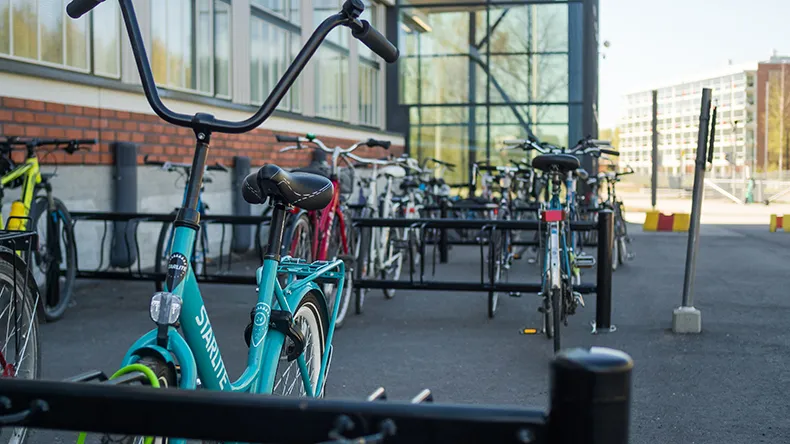Report on Sustainability: LAB promotes sustainable development as a community and with businesses

The LAB University of Applied Sciences promotes sustainable development in cooperation with businesses, campus activities, education, and RDI activities. The Report on Sustainability presents actions taken in line with LAB’s seven Sustainable Development Goals.
For example, LAB is promoting its goal of Good health and Well-being (SDG 3) as part of the BIOPROT project, in which protective equipment, such as face masks, is manufactured with bio-based materials. A team studying textiles and plastics is focused on developing Responsible Consumption and Production (SDG 12) through the circulation of materials.
Industry, Innovation and Infrastructure (SDG 9) are influenced by developing high-quality tools for teaching mechanics remotely. LAB also strives to prevent students from dropping out of their studies with online courses.
“With these projects, we are responding to needs in working life and society while also considering the aspects of social, ecological and economic sustainability. We are putting the experiences and lessons learned to good use in our teaching,” LAB Rector Turo Kilpeläinen says.
The effects on sustainability span from a local to national and global level. Turo Kilpeläinen is Chair of Arene’s working group on sustainability and responsibility, and LAB is also involved in scientific education organisations in Lappeenranta and Lahti.
Carbon footprint and human rights are also reported on
The Report on Sustainability is also a response to the UN Global Compact initiative, to which LAB is committed as one of few universities of applied sciences. The principles of the biggest global initiative in corporate responsibility promote a more sustainable global economy as well as respect for nature and human rights.
LAB has recently renewed its equality plan and aims to make the community more inclusive.
“Our personnel has been offered guidance in considering cultural diversity and gender-sensitive teaching,” Sustainability Manager Kati Koikkalainen says.
LAB’s carbon footprint in 2021 was 974 tons of carbon dioxide equivalents. The most emissions come from procurement, 601 tCO2eq (62%), buildings, 245 tCO2eq (25%), and business travel, 127 tCO2eq (13%). LAB’s goal is to be carbon negative by the end of 2030.
“We are protecting the environment, for example, by purchasing 100% renewable electricity and by participating in the costs of city bikes in Lappeenranta. We will continue our efforts to weed out emissions and to increase know-how in sustainable development among our personnel and students.”
According to the Sustainability Manager, swift progress is being made in this 2-year-old organisation.
“76% of our personnel, led by the Rector, participated in coming up with actions to promote sustainability and responsibility as a community and with businesses. The report highlights only a small part of what we have done and planned,” Kati Koikkalainen says with a smile.